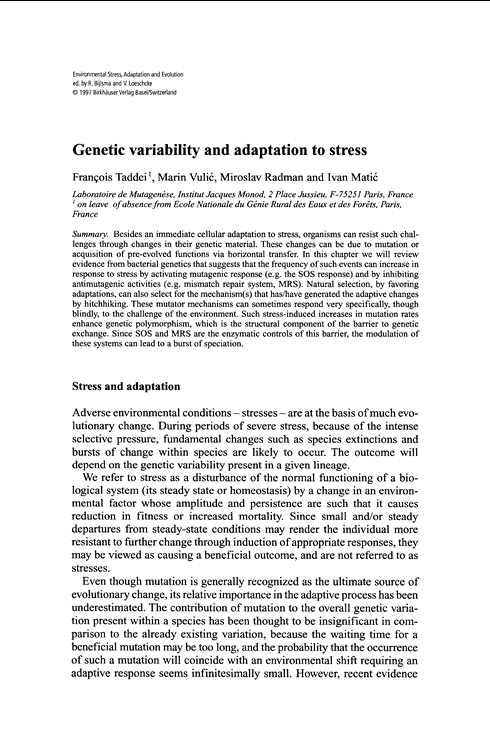Abstract
Besides an immediate cellular adaptation to stress, organisms can resist such challenges through changes in their genetic material. These changes can be due to mutation or acquisition of pre-evolved functions via horizontal transfer. In this chapter we will review evidence from bacterial genetics that suggests that the frequency of such events can increase in response to stress by activating mutagenic response (e.g. the SOS response) and by inhibiting antimutagenic activities (e.g. mismatch repair system, MRS). Natural selection, by favoring adaptations, can also select for the mechanism(s) that has/have generated the adaptive changes by hitchhiking. These mutator mechanisms can sometimes respond very specifically, though blindly, to the challenge of the environment. Such stress-induced increases in mutation rates enhance genetic polymorphism, which is the structural component of the barrier to genetic exchange. Since SOS and MRS are the enzymatic controls of this barrier, the modulation of these systems can lead to a burst of speciation.

PDF format soon available - Past Research in construction

